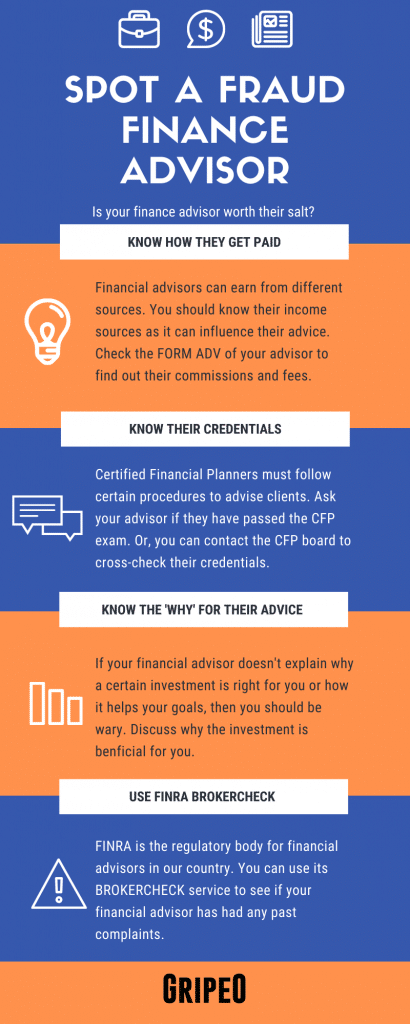Ivan Shore

Background Of Ivan Shore (CRD No. 1012943)
Shore first became registered with FINRA in 1981. In 1997, Shore became registered as a
General Securities Representative and a General Securities Sales Supervisor through an
association with Oppenheimer & Co. Inc. (CRD No. 249). He currently remains
registered in those capacities through Oppenheimer.
Respondent does not have any disciplinary history with the Securities and Exchange
Commission, any state securities regulators, FINRA, or any other self-regulatory
organization.
Activity(s) Reported – Ivan Shore
A. Unit Investment Trusts
A Unit Investment Trust (UIT) is an SEC-registered investment company that offers investors shares or “units” in a fixed portfolio of securities via a one-time public offering. A UIT terminates on specified maturity date, often after 15 or 24 months, at which point the underlying securities are sold and the resulting proceeds are paid to the investors. A UIT’s portfolio is not actively managed between the trust’s inception and its maturity date.
UIT sponsors often offer UIT product lines in successive “series,” with the offering periods for new series typically coinciding with the maturity date of prior series. Successive series of UITs often have the same or similar investment objectives and investment strategies as the prior series, even if the portfolio of securities held by the UIT changes from series to series.
UITs impose a variety of upfront sales charges. For example, during the relevant period, a typical 24-month UIT contained three separate charges: (1) an initial sales charge, which was generally 1% of the purchase price; (2) a deferred sales charge, which was generally up to 2.5% of the offering price; and (3) a creation and development fee (“C&D fee”), which was generally 0.5% of the offering price.’ If the proceeds from the sale of a UIT were “rolled over” to fund the purchase of a new UIT, UIT sponsors often waived the initial sales charge, but still applied the deferred sales charge and C&D fee.
A registered representative who recommended the sale of a customer’s UIT before its maturity date and used the sale proceeds to purchase a new UIT would cause the customer to incur greater sales charges than if the customer had held the UIT until maturity. For example, a hypothetical customer who purchased a 24-month UIT and held it until maturity would have paid a sales charge of about 3.95%. However, if after six months, the customer rolled over the UIT into a new UIT, he or she would have paid an additional 2.95% in sales charges. And, if the customer repeatedly rolled over the existing UIT into a new UIT every six months, he or she would have paid total sales charges of approximately 12.8% over a two-year period.
Because of the long-term nature of UITs, their structure, and their costs, short-term trading of UITs may be improper.
B. Shore Engaged in an Unsuitable Pattern of Early Rollovers of UITs
During the relevant period, Shore recommended his customers roll over UITs more than
100 days prior to maturity on approximately 900 occasions. Indeed, although his
customers’ UITs typically had a 24-month maturity period, Shore recommended that they sell their UlT after holding them for, on average, only 231 days, and use the proceeds to purchase a new UIT.
Of the approximately 900 early rollovers recommended by Shore, more than 240 were “series-to-series” rollovers. In other words, on more than 240 occasions, Shore recommended that his customers roll over a UIT before its maturity date in order to purchase a subsequent series of the same UIT, which, as noted above, generally had the same or similar investment objectives and strategies as the prior series.
As one example of a recommended “series-to-series” rollover, Shore recommended that: customer purchase a UIT issued in the second quarter of 2013 that had an investment objective of “above-average capital appreciation” and an investment strategy of investing in a “diversified portfolio of common stocks” (the “2013 Q2 Series”). Although the 2013 Q2 Series UIT had a 24-month maturity period, Shore recommended that his customer sell it after holding it for 189 days and use the proceeds to purchase a later series of the same UIT issued in the third quarter of 2013 (the “2013 Q3 Series”). The 2013 Q3 Series had the same or a similar investment objective and strategy as the 2013 Q2 Series. Shore’s recommendation that his customer sell the 2013 Q2 Series approximately 17 months prior to its maturity and use the proceeds to purchase the 2013 Q3 Series caused his customer to incur increased sales charges to purchase what was, essentially, the same investment.
Shore’s recommendations caused his customers to incur unnecessary sales charges,2 and were unsuitable in view of the frequency and cost of the transactions.
By virtue of the foregoing, Shore violated NASD Rule 2310 (for conduct before July 9, 2012), FINRA Rule 2111 (for conduct on or after July 9, 2012), and FINRA Rule 2010.
Can you expose the broker trying to trick you?
FINRA offers the free web tool BrokerCheck, which allows users to check a broker’s credentials, registration, and employment history. The disclosure part of BrokerCheck includes information on client conflicts, disciplinary proceedings, and specific financial and legal issues on the broker’s record.
Penalties And Sanctions
A suspension from association in any and all capacities with any FINRA member firm for a period of three months; and A $5,000 fine.
Respondent agrees to pay the monetary sanction upon notice that this AWC has been
accepted and that such payment is due and payable. Respondent has submitted an
Election of Payment form showing the method by which he proposes to pay the fine
imposed.
Respondent specifically and voluntarily waives any right to claim an inability to pay, now
or at any time hereafter, the monetary sanction imposed in this matter.
Respondent understands that if he is barred or suspended from associating with any
FINRA member, he becomes subject to a statutory disqualification as that term is defined
in Article III, Section 4 of FINRA’s By-Laws, incorporating Section 3(a)(39) of the
Securities Exchange Act of 1934. Accordingly, he may not be associated with any
FINRA member in any capacity, including clerical or ministerial functions, during the
period of the bar or suspension. See FINRA Rules 8310 and 8311.
The sanctions imposed herein shall be effective on a date set by FINRA staff
Recent Activity(s)Of The Individual/Firm
Between July 1, 2011 and December 31, 2015, Shore engaged in an unsuitable pattern of
short-term trading of Unit Investment Trusts in customer accounts. Based on the
foregoing, Shore violated NASD Rule 2310 (for conduct before July 9, 2012), FINRA
Rule 2111 (for conduct on or after July 9, 2012), and FINRA Rule 2010.
How To Spot A Fraud Finance Advisor (Infographic)

Help For Victims Of Ivan Shore
If you have lost funds because of misrepresentation, unsuitable investment, or unsuitable investment strategy from Ivan Shore. Then you can take legal action and get justice. Fraud, Malpractice & dereliction of duty should not be taken lightly, especially in this industry. We highly suggest that you notify authorities or seek legal action if your financial advisor or brokerage firm fails to abide by FINRA’s rules are regulations.
Financial advisors are regulatory & legally obligated to suggest (recommend) the most suitable investments/investment strategies to their clients. Their suggestions should have their client’s best interests and should be appropriate for their client’s goals and needs. Similarly, the brokerage firm which hires financial advisors also has a regulatory & legal obligation to keep a close watch and supervise their Financial Advisors’ practices & behavior. They need to make sure that the financial advisor is not being manipulative or having an unreasonable bias towards certain investments. If the financial advisor and/or the brokerage firm breaches these duties, then the client/customer may be entitled to a full or partial recovery of their losses.
Financial advisors need to have the interest of their clients when giving suggestions related to investments and investment strategies. Reasonable basis suitability requires the advisor to do their best to analyze & identify the risks and rewards associated with their suggested investment and/or investment strategy.







